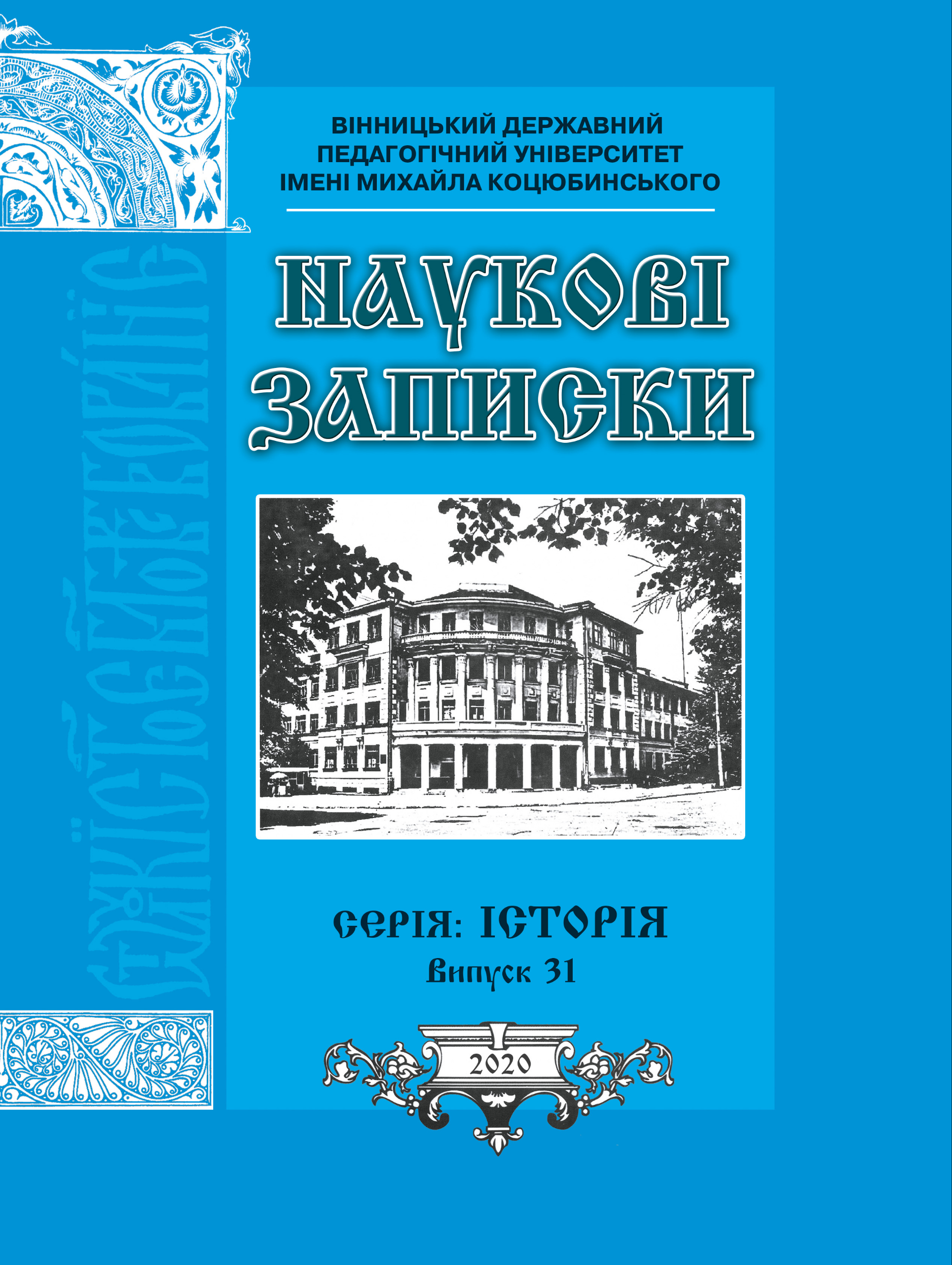Abstract
Relevance of the research topic, apart from a purely scientific interest, lies in the fact the issue of forming language-informational spaces has a great sociopolitical interest at the beginning of the third millennium. The purpose of the article is to study the policy of the Polish state aimed at Polish language popularization in the world at the end of the 20th – beginning of the 21st century and broadening the borders of the Polish-speaking information space. The methodology of the research is based on the combination of general scientific (analysis, synthesis, generalization) and special (historical-genetic, historical-typological, historical-systemic, sociocultural) methods with the principles of historicity, systemic, scientific approach and verification. Starting positions for Polish language popularization were based on the belief that a language should perform not only communicative, but also a number of social functions – strengthen the feeling of unity and the significance of language bearers, spread a certain worldview, make the life of Poles abroad simpler. Language popularization provides invaluable help and support to national branding, which became a priority of the Polish government at the beginning of the 21st century. However, the situation that had formed in the course of historical development, rather hindered than facilitated the performance of the stated functions by the Polish language. Language popularization outside state borders required the improvement of the overall image of Poland and the Poles in the world as well as overcoming the stereotype about the complexity of the Polish language. To implement the language policy tasks, a number of institutions were established: Polish Language Council, Adam Mickiewicz Institute, Polish Institute, Polish Language Union outside the Country’s Borders. However, the most effective Polish language promotion policy turned out to be among Polonia and the Poles abroad and not among foreigners. Conclusions. At the end of the 20th – beginning of the 21st century the scientific and managerial circles of Poland realized the importance of language popularization in the world as an important component of national branding. However, institutional and financial support of Polish language popularization turned out to quite low. This undoubtedly hindered national branding as it did not allow to involve foreigners into the language-informational space and make involuntary “agent” of the Polish worldview.
References
Chromiec, J. J., Eschenbach, M., Schaeffer, J., Traczyk, A., Zels, S. (2018) Powrót do przyszłości? Stosunki polsko-niemieckie w zmieniającej się Europie. Raport z warsztatów „Europa na Nowo”. Warszawa, 15 s.
Dąbrowska, А., Miodunka, W., Pawłowski, A. (2012) Wyzwania polskiej polityki językowej za granicą: kontekst, cele, środki i grupy odbiorcze. Warszawa, 66 s.
Fałkowski, M. (2002) Polska jako Wschód i jako Zachód. Wzajemne postrzeganie Polaków i Niemców‚ wyniki najnowszych badań. Dialog, Magazyn Polsko-Niemiecki, 60. http://www.isp.org.pl/site.php?id=72&pagep=2
Miodunka, W., Tambor, J., Achtelik, A. et al. (2018) Nauczanie I promocja języka polskiego w świecie. Diagnoza – stan – perspektywy. Katowice: Wydawnictwo Uniwersytetu Śląskiego, 338 s.
MSZ RP (2020) Rządowy program współpracy z Polonią I polakami za granicą w latach 2015-2020. http://www.msz.gov.pl/resource/70a7021e-304c-4075-a812-18e5b3410966:JCR
Pawłowski, A. (2005) Język polski w Unii Europejskiej:szanse I zagrożenia. Poradnik Językowy,10,3-27.
Pawłowski, A. (2015) Promocja języka polskiego : między lingwistyką a marketingiem. Poradnik Językowy, 8., 143-155.
Коукер, К. (2000) Сумерки Запада. Пер. С англ. А.А. Арзуманова. М.: Московская школа политических исследований, 272 c.
Неприцька, Т. І. (2013) Місце польської мови в багатомовному просторі Європейського Союзу. Грані, № 4, С. 86-90. https://doi.org/10.15421/1715084
Неприцький, О. А. (2015) Формування міжнародного іміджу держави в епоху глобалізації. Наукові записки Вінницького державного педагогічного університету імені Михайла Коцюбинського]. Серія: Історія. Вип. 23, С. 178–184. https://doi.org/10.31652/2411-2143-2015-23-178-183
Терещенко, В. Я., Штепура, А.П. (2013) Польська мова: перспективи розвитку в Україні. Наукові записки [Ніжинського державного університету ім. Миколи Гоголя]. Серія : Філологічні науки, Кн. 1, 246-249.

This work is licensed under a Creative Commons Attribution 4.0 International License.
Copyright (c) 2020 Scientific Papers of the Vinnytsia Mykhailo Kotsiubynskyi State Pedagogical University. Series: History





